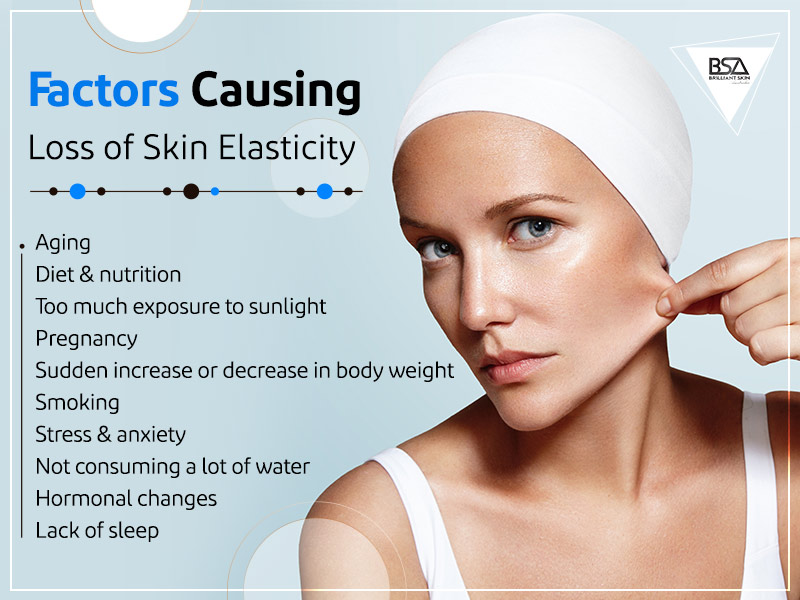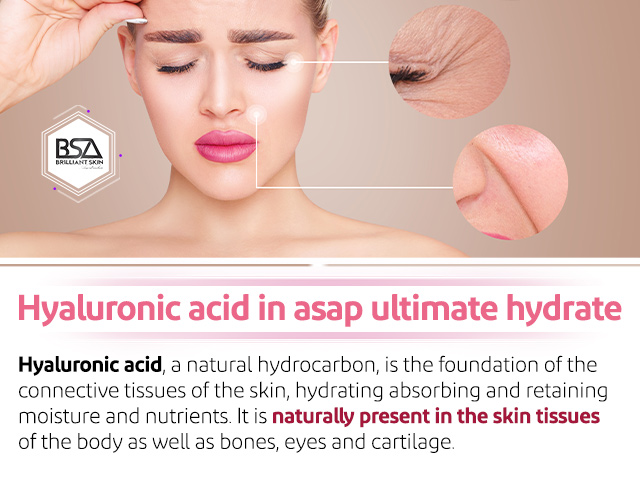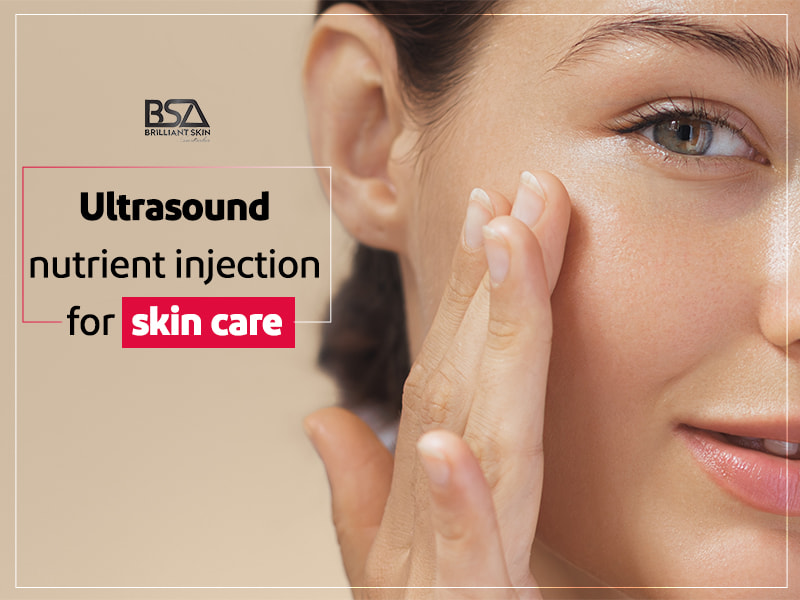How to Improve Skin Elasticity
- Updated February 1, 2023
- by Honey Seida

Skin elasticity is a natural ability in the skin the loss of which causes wrinkles, and sagging of the skin in some areas. Naturally, our skin loses some of its elasticity due to the aging process, and this is actually one of the main ways we use to determine the age of people. But in the meantime, there are solutions that can improve skin elasticity and slow down the aging process.
What Is Skin Elasticity?
The skin, which is considered to be the largest organ, consists of three layers: epidermis, or the surface layer, dermis, or the middle layer, and hypodermis, or the deep layer. Collagen and elastin proteins are made in the middle layer, which consists of the connective tissues of the skin that are responsible for its elasticity. Thus, it is the collagen and elastin fibers that cause the skin to return to its original position when it is stretched. It should be noted that due to several factors such as aging, the rate of production of these fibers and proteins decreases; as a result, the elasticity of the skin decreases and our skin becomes loose and droopy.
Ways to Improve Skin Elasticity
Avoiding smoking, having a diet rich in fruits and natural ingredients, reducing stress, using high-quality cosmetics and as little makeup as possible, exercising, using sunscreen, and moisturizing the skin, and using specialized facial massages to rejuvenate the skin can go a long way when it comes to improving skin elasticity.
Microneedling to Improve Skin Elasticity
With microneedling, the deep layers of the skin that produce collagen, stimulate the skin to be more active in order to maintain its elasticity by making more collagen; as a result of which the skin will regain its elasticity. Microneedling is effective for shallow wrinkles and looseness, while also exfoliating the surface of the skin and erasing pimples, blemishes, dark spots, and scars to a great extent.
HIFU to Improve skin Elasticity
Following today's world's need for beauty and obtaining the elixir of youth, modern technologies have been introduced to the market, one of which is HIFU treatment, which is one of the best methods available today for lifting and rejuvenating facial skin. This method is non-surgical, without downtime, with minimum pain or bleeding, and completely non-invasive.
HIFU treatment works on the lower layers of the skin and stimulates collagen production by using focused ultrasound waves that come with high intensity. By performing HIFU, sagging skin is treated and its elasticity will improve.
The initial result in improving skin elasticity will be 20% visible, while the remaining 80% will be noticeable after about two to three months once skin collagenization has been done and will last up to one year.
RF to Improve Skin Elasticity
Radio Frequency Skin Tightening is a method available today for lifting and rejuvenating the skin. By sending radio frequency waves to the middle layers of the skin, the RF machine heats the skin layers and the skin's response to this heat is to increase collagen production for skin regeneration and repair.
It is worth mentioning that RF is compatible with all types of skin and is used in the treatment of sagging skin, improvement of wrinkles, facelifts, tightening of facial muscles along with improvement of skin elasticity.
How Can I Improve Skin Elasticity at Home?

In order to improve skin elasticity at home, one can use skin care formulas that strengthen the skin, remove wrinkles, and brighten it.
asap ultimate hydrate
Although all healthy skin ages, skin care products such as asap ultimate hydrate including vitamins, Niacinamide, hyaluronic acid, etc. can be used to slow down the aging process and increase skin elasticity.
Hyaluronic acid is a natural substance found in skin cells and a part of the skin's connective tissue. Its main function is to keep the moisture of the skin, which boosts its ability to hold water between 1000 and 10000 times its weight. Hyaluronic acid reduces wrinkles and improves skin elasticity by keeping the skin hydrated. Niacinamide helps to improve skin elasticity as well by increasing ceramides.
How to Prevent Loss of Skin Elasticity
- Lifestyle changes: sleep is the time for skin regeneration and repair from daily activities and pollution. Therefore, by correcting the amount and time of sleep, you can prevent premature aging and help to improve skin elasticity. The best time to sleep is between 10-11 at night and 6-7 in the morning for 8 hours.
- Eating healthy foods: a diet containing antioxidants such as dark green or orange vegetables and fruit, spinach, tomatoes, beans, nuts, dark chocolate, salmon, etc., by reducing the destructive effects of radicals harmful to the skin help to retain skin elasticity. Also, drinking plenty of water and keeping the body hydrated helps with moisturizing the skin and improving its elasticity.
- Avoiding exposure to direct sunlight and using sunscreen: Skin care against sunlight is the most basic step to prevent premature aging. Even on cloudy days, the sun's rays can and will damage the skin and it is necessary to use sunscreen even on those days. It should be noted that you need to use sunscreen that has an SPF of 30 at least.
- No smoking and alcohol consumption: If you want to improve skin elasticity, you need to stop smoking and drinking alcohol as they can severely damage your skin due to lack of oxygen and proper blood supply to the skin
- Using moisturizers and hydrators
Final Word
The skin is the outer protection of our bodies. This organ protects us from various elements such as the rays of the sun and a number of other environmental stimuli. As we age, however, our body is exposed to more and more stimuli. Therefore, it is not surprising that the skin, which is considered the first protective layer, undergoes changes, and loses its elasticity as a result. However, what can be done to improve skin elasticity? How can we keep this sensitive organ alive and fresh? These are the kinds of questions that we addressed in this guide.






